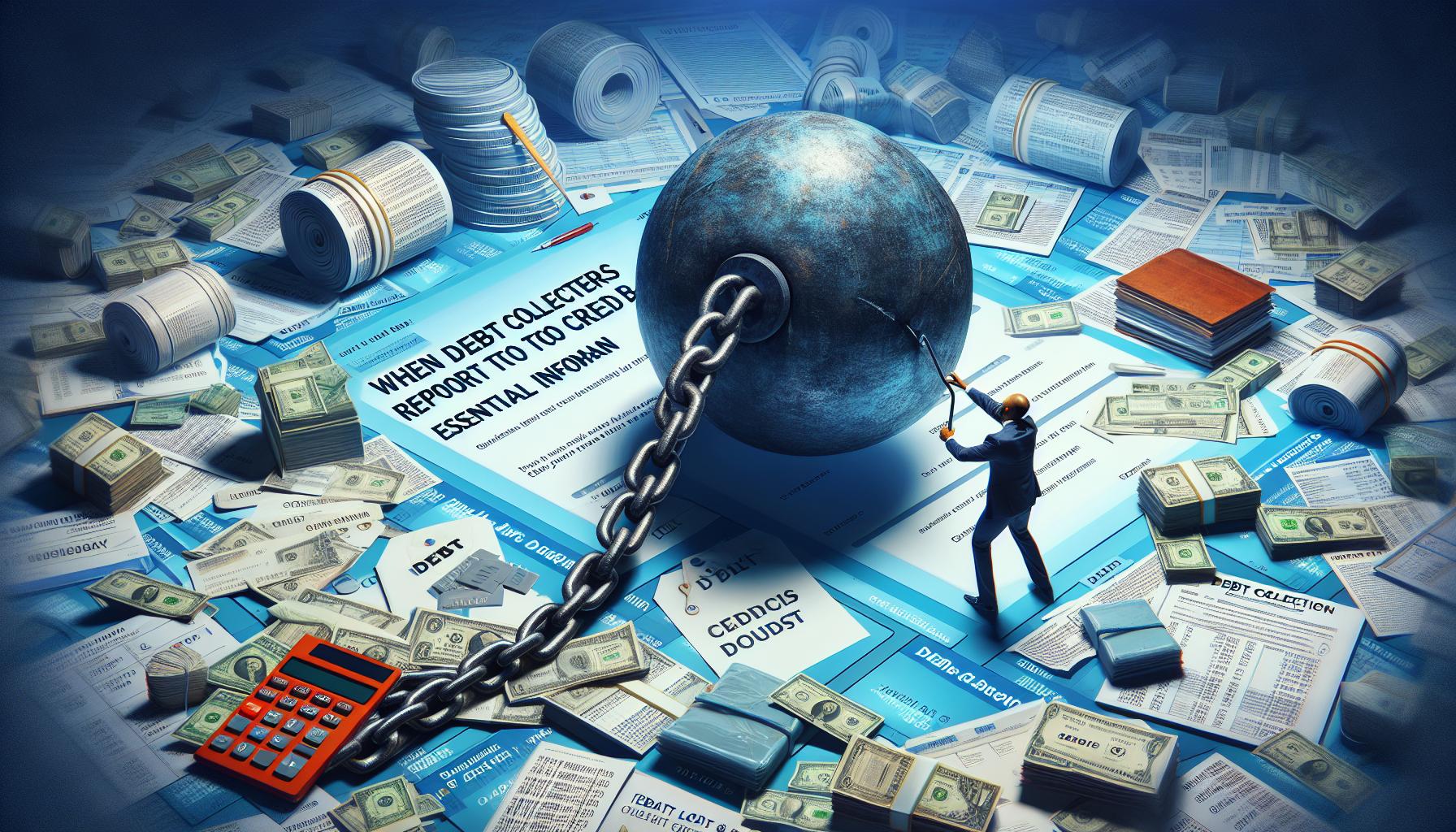
Take a Tantalizing Tour into the Tangle of Debt Collections and Credit Bureaus
What happens when debt collectors report to credit bureaus? The straightforward answer is a dip in your credit score, a record staining your credit report, and potential difficulties in obtaining future credit. This situation is as fretful as a fox in a henhouse for any borrower, yet it’s a common scenario many face. In this article, we will further unpack the process, ramifications, and ways to navigate such a precarious position. Let’s dive deep into the default-dungeon and unearth some invaluable intel on dealing with debt collectors and credit bureaus.
The Unpleasant Union of Debt Collectors and Credit Bureaus
A harmony of horror, the alliance between debt collectors and credit bureaus can be an absolute nightmare for those on the receiving end. These two institutions work hand in hand to ensure that creditors get their dues. Debt collectors are akin to tenacious predators relentlessly chasing down debts, while credit bureaus are the impartial observers, studiously recording and reporting your credit manners.
The Debt Collector Deeds
As fierce as a pride of lions hunting their prey, debt collectors will exhaust all means possible to recover what’s owed. When an account is severely delinquent, debt collector agencies step into the picture. They employ an array of tactics, from phone calls to letters, and in some pesky cases, even legal lawsuits.
The Crucial Chronicle of Credit Bureaus
The second act of this distressing drama plays out within the walls of credit bureaus. Once debt collectors lay their hands on your records, these agencies become the messengers delivering the dire news to lending establishments. When they report to the credit bureaus, your loan mishaps become part of a credit report affecting your future borrowing capabilities.
The Grave Gravity of a Credit Report
Down the line, as though peering through a magnifying glass at your financial character, lending institutions analyze your credit report. A report stained with delinquencies, collections, or worse bankruptcy, paints a rather bleak, risky, and unreliable image. Try as you might to shake off this reality, it’s as unmovable as a mountain, seriously hampering your attempts at future credit.
Escaping the Dreadful Dance between Debt Collectors and Credit Bureaus
Is there any way out of this debt debacle? Absolutely! Understand that debt collectors and credit bureaus aren’t as fearsome as they first appear. Picture them instead as players within a vast financial ecosystem, each serving their roles to maintain balance. Your part in this system is to ensure good money manners henceforth and, over time, you can alter your financial fate.
Repairing Your Credit Reputation
Firstly, answer the call of debt collection and engage with them. Choose cooperation over cowardice. Secondly, audit your credit report regularly for any discrepancies. As insurmountable as the task may seem, slow and steady wins the race. Over time, with responsible credit use and disciplined debt repayments, you’ll see a healthier credit score.
Conclusion: A Dose of Financial Realism
Despite the intricacies and intimacies of the debt collection process and credit bureau reporting, remember that they serve as wake-up calls to help you rectify your financial flaws. Challenges with credit don’t have to beget calamities but can actually catalyze constructive changes in your financial behavior. So, step into the dance with debt collectors and credit bureaus with renewed resolve, knowing that you can certainly turn the tables with time and tenacity.
Frequently Asked Questions
1. Can debt collectors affect your credit score?
Yes, debt collectors can drastically bring down your credit score once they report late payments, debts, and collections to credit bureaus.
2. How long does a collection stay on your credit report?
A collection record can remain on your credit report for up to 7 years from the date of the original delinquency.
3. Can paying off collections raise your credit score?
While paying off collections won’t remove the record from your credit report, it paints a more responsible image to future lenders and can moderately raise your credit score.
4. How does a settled account affect credit?
Settled accounts indicate that the borrower has paid less than agreed. While it’s better than an unpaid debt, it’s still a negative record and can affect your credit.
5. Does a debt disappear after 7 years?
The record of the debt will disappear from your credit report after 7 years, but depending on the state’s statute of limitations, collection attempts can still be made.

